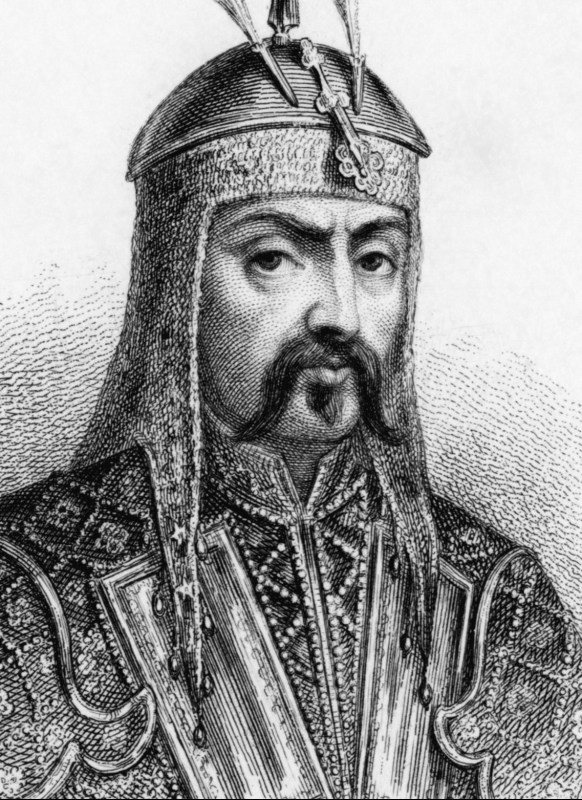After ruthlessly expanding his Mongolian empire throughout most of Asia for 20 years, Genghis Khan pivoted westward towards Europe—but the army failed to conquer Hungary in 1242, retreating to present-day Russia. The Mongol’s halted march on eastern Europe has been the source of much speculation over time, but a recent study in Scientific Reports proves what actually happened.
(Fine Art Images/Heritage Images/Getty Images)Researchers Ulf Buntgen and Nicola Di Cosmo argue that environmental conditions, specifically a number of extremely warm and dry years followed by a cold and wet one in 1242, proved detrimental to the Mongolian campaign. “Marshy terrain across the Hungarian plain most likely reduced pastureland and decreased mobility, as well as the military effectiveness of the Mongol cavalry, while despoliation and depopulation ostensibly contributed to widespread famine,” Buntgen and Di Cosmo say in their report.
The two researchers discovered the extreme shifts in prevailing climate by poring over documentary sources and environmental samples. The historical accounts helped provide socio-political context for the Mongolian military campaign in eastern Hungary. Tree-rings from across Europe were analyzed to reconstruct the year-to-year, longer-term climate changes. To learn more about Buntgen’s and Di Cosmo’s methods, read the study here.
This article appeared in an InsideHook newsletter. Sign up for free to get more on travel, wellness, style, drinking, and culture.

























